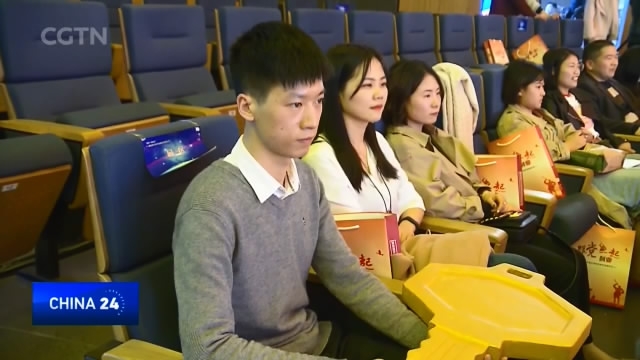
21:45, 01-Apr-2018
War for Talent: Chinese cities ramp up bonuses to attract experts

Competition is so fierce among China's top-tier cities -- such as Beijing, Shanghai and Shenzhen -- to attract world-class talent. They are being forced into coming up with highly enterprising ways to beat each other. And now some of China's smaller cities are beginning to get in on the act with their enticing packages, especially in sectors such as high-tech. Let's have a look.
Wei Yanyu is among the first batch to receive a key for his furnished apartment. After graduating in Beijing, he brought his startup -- a robotic company -- to Hangzhou. A coup, some might say, for the eastern Chinese city, as it successfully beat the competition to the prize.
WEI YANYU GRADUATE OF BEIHANG UNIVERSITY "I think to be able to settle in this house is a huge encouragement for me. So I can work on my startup."
Wei only pays one hundred yuan in rent for his 17-hundred-yuan-a-month apartment. The rest is taken care of by the city.
WEI YANYU GRADUATE OF BEIHANG UNIVERSITY "On one hand, it cuts down my travel time; on the other, it lowers my overall expenses. I am so happy."
An apartment, resettling benefits, and other residential bonuses -- these are the enticements Chinese cities use to attract premium talent. But when they're all doing it, they must keep coming up with more tempting offers and that's essentially what China's skilled workforce is looking for.
DING LI, TEAM MEMEBR UNIVERSITY OF SHANGHAI FOR SCIENCE AND TECHNOLOGY TERAHERTZ RESEARCH "For us, it serves as a good incentive and is good encouragement."
The cities' policies are aimed at landing the best brains from both home and abroad. And for organizations like the Shanghai Institute of Organic Sciences of the Chinese Academy of Sciences, they are a real bonus. They can now provide their primary target at the Harvard Medical School with a package that satisfies all their needs.
DING GUILING, DIRECTOR SHANGHAI INSTITUTE OF ORGANIC SCIENCES OF THE CHINESE ACADEMY OF SCIENCES "The new policies are just in time. We did some explorations prior to this. After the policies come out, we have more confidence in inviting and attracting the top talent."
Most of the policies are specifically customised for the high-tech and innovation-driven industries. The benefits are not limited to financial rewards either, but also lowering the barriers for a permanent residence account, also known as Hu-Kou. It will enable migrant workers to qualify for better social welfare benefits and education for their children.

SITEMAP
Copyright © 2018 CGTN. Beijing ICP prepared NO.16065310-3
Copyright © 2018 CGTN. Beijing ICP prepared NO.16065310-3